– By Kanika Shokeen


March of 2019 was the first instance when India was invited as a guest of honor to a meeting of the OIC, or the Organization of Islamic Cooperation. This was also the period, when back home, the new government stood as a sentimental and physical representation of the wave of majoritarian support, and conservative leaning political ideologies. Relevant also, were the headlines flashing in October 2021 of the persecution of indigenous Muslim communities in assam in supposed debates surrounding the true indigenous people.
It is worthy to note at this point, that religious missions of different kinds—most notably Christian and Muslim—have been a crucial expression of international religious soft power for millennia. The goal is to influence people’s religious standards, attitudes, and beliefs from one set of views to another; as a result, individuals and religious organizations in a foreign nation eventually become to behave like the original proselytizers. Through this direct or indirect influence in domestic politics, religion becomes a guiding force for foreign policy makers.
This was used as a strategy from a time before Westphalian International Politics. Kingdoms and Kinships found partnership in shared religious ideology. Resident embassies established by European powers in Constantinople and other important cities were transfer points that fostered trade. They would look after their merchants and provide their homeland with regular reports of not only political events, but also religious peculiarities of Ottoman society. On the other hand, this debate musn’t ignore the Ottomans’ negative image among Christians, who saw their Muslim neighbours as a constant menace, or the subsequent reputational problem that a Christian ruler would face in an open alliance with the infidel Ottoman Sultan, the greatest threat to Christianity. Furthermore, this negative image had political consequences, and is where this case study becomes a focal point of discussion. It resulted in a number of Crusade expeditions against the Ottomans. Christian states refused to trade with the Turks, which proved to be one of the greatest causes of its decline due to their overarching dependency on European shipping for sea routes.
The Question of Religion and World Politics has since been given little space in academics. Although many authors attest to the substance of religion in international relations, with some observers noting a recent widespread religious revival, there is less agreement on how religion affects foreign policy (Fox & Sandler, 2004; Norris & Inglehart, 2004; Thomas 2005; Haynes 2007). Nonetheless, using existing literature, we can create a comparative framework within which to place India’s recent actions, and apprise against the consequences of the same.
First, as Fox and Sandler mention, religion can be among the basis of identity. Samuel Huntington also reflects this sentiment, when he predicts identity-based civilisations will play a huge role in post-cold war era world politics. Similarly, religion plays a huge role in the foreign policy of the OIC countries, and this phenomenon is certainly not limited to them. Consider the Holy See/Vatican (and, more generally, the Roman Catholic Church), and the World Council of Churches (WCC). The impact and capacity of such religious actors are linked to the incumbent governments’ ideological and/or national interest priorities. That is, the way non-state actors have an effect on foreign policymaking is through reflecting a broader concern about the relationship between material concerns—including national security concerns—and religious and ethical ideas, norms, and values. This manner of involvement can also be referred to as the securitization of religion, i.e., the process through which state actors transform subjects from regular political issues into matters of “security”, thus enabling extraordinary means to be used in the name of security.
Second, the belief system that stems from religion influences behavior. This can be proved through the politics of world leaders like Woodrow Wilson, and John Foster Dulles. While there is much disagreement over the meaning-making of Islamism in the OIC agenda, most would agree that this is not an anomaly in the decisions that are ultimately made by Northern Africa and West Asia. As Simbar (2009) puts it,
“Islamic radicalism is a form of cultural nationalism, a native response to the weakening of traditional structures. It can be said, in this view, that political Islam was a reaction to Muslim cultural erosion. Islamism is a passing, and badly misperceived, revivalist movement which poses little danger to the West, and is in actuality a vital part of the cultural renewal of the Third World people. Moreover, fundamentalist movements are seen as no more than a response to the process of globalization, which, in all its aspects, challenges standards and ways of life of the non Western World.”
Immediately, one notes the shared desire for rebuilding heritage in India’s local and foreign policymaking. Beyond that, on the security front, 7 million Indians currently reside and find gainful employment in Saudi Arabia, UAE, Kuwait, Oman, Qatar and Bahrain. In response to the Corona Crisis in India, Riyadh became a source for cryogenic tanks and regular oxygen cylinders. The first shipment of four tankers, that sailed from Dammam port, also carried 80 megatons of oxygen to India. Qatar Airways, financed by local taxpayer funds, announced assistance by delivering medical supplies from various countries free of cost..
Unfortunately, there is a lack of cognizance and empathy to be found towards these tilting power structures, and socio-economic relations in India’s changing foreign policy. Sentiments shared by the Ministry of Foreign Affairs can be perfectly summed up in their response to a journalist on whether India was losing some friends because of some of its policies – “Maybe we’re getting to know who our friends really are.” Note that these aren’t suppositions, based on abstract ideas that could be true. These feelings have been blatantly and openly expressed. Mr. Bagchi, spokesperson of the ministry, believes that OIC encourages elements that promote terrorism-targeting and even support actors and organizations engaged in acts of terrorism. It is also not a supposition that bilateral relations are being tarnished. Turkey, Iran, Malaysia and Indonesia have openly condemned India’s actions, in reference to Article 370 and the persecution of Muslim communities in Delhi, to illustrate examples from the recent past.
To put it in simple terms, it is not the aim of this article to suggest that India not take threats of terrorism seriously, and condemn such organizations openly at the global stage. Rather, it is to suggest that the OIC is not one such organization. In the recent past, joint statements have been issued by India and the UAE, as well as India and Saudi Arabia, in which the respective leaders have pledged to strengthen anti-terror cooperation with India, including combating the growing presence of ISIS. The numerous bilateral defense exercises between India and the Gulf are another impetus for security cooperation between the two countries. Every year, India and Oman conduct bilateral exercises involving all three branches of the armed forces. Furthermore, Oman has granted the Indian Navy access to the Port of Duqm SEZ, which is one of the largest deep-sea ports in the Indian Ocean
The OIC countries have proven to be a close ally, who must be kept closer as threats from India’s local neighbors become increasingly existential. (Consider the recent skirmishes along the Tibet Autonomous Region.) Similar to India’s own desire for rebuilding heritage lost to nearly 200 years of colonialism, white-washing, and increasing cultural homogenisation on the global front, is the yearning found in OIC’s supposedly political terror agenda. India’s recent ethnocratic actions could prove to be terribly critical, if they trigger enough outrage amongst the gulf population. It is not far-fetched to suggest that economic sanctions, or complete trade blackouts from the Middle East are on the horizon of such outrage.
As a relatively young member of the new world order, isolationism is not the path to self-sufficiency or power. The aim of this article, therefore, becomes simply for a remembrance of truly diplomatic non-alignment, as the traditions were laid nearly 50 years ago as India ventures into World Politics.
References :
- Gürkan, Emrah Safa (2012). Christian Allies of the Ottoman Empire. Published by the Institute of European History (IEG), Mainz. http://www.ieg-ego.eu/gurkane-2010-en
- Warner, C. M., & Walker, S. G. (2011). Thinking about the Role of Religion in Foreign Policy: A Framework for Analysis. Foreign Policy Analysis, 7(1), 113–135. http://www.jstor.org/stable/24909818
- Simbar, R. (2009). Political Islam and International System: Impacts and Implications. Journal of International and Area Studies, 16(2), 107–123. http://www.jstor.org/stable/43107194
- Fox, Jonathan & Sandler, Shmuel. (2005). The Question of Religion and World Politics. Terrorism and Political Violence. 17. 293-303.10.1080/09546550590929165 .
- Haynes, J. (2008). Religion and Foreign Policy Making in the USA, India and Iran: Towards a Research Agenda. Third World Quarterly, 29(1), 143–165. http://www.jstor.org/stable/20455030
- Bhattacherjee, K. (2022, March 17). OIC is guided by political agenda: India. The Hindu. https://www.thehindu.com/news/national/unfortunate-that-oic-guided-by-single-members-political-agenda-india/article65235417.ece
- Jaffrelot, C. (2020, April 22). Muslim countries with which India had increasingly good relations have become less friendly. The Indian Express. https://indianexpress.com/article/opinion/strap-muslim-countries-with-which-india-had-increasingly-good-relations-have-become-less-friendly-6373721/
- Economic Times. (2020, February 14). Power shifts and re-calibrations: India and the Gulf. Economic Times. https://economictimes.indiatimes.com/blogs/et-commentary/power-shifts-and-re-calibrations-india-and-the-gulf/
- Team, T. (2020, March 7). Why four important Islamic nations are angry with India. ThePrint. https://theprint.in/opinion/why-four-important-islamic-nations-are-angry-with-india/377283/
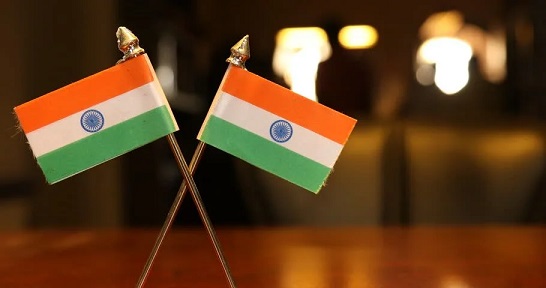
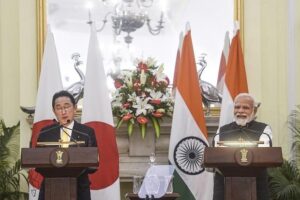

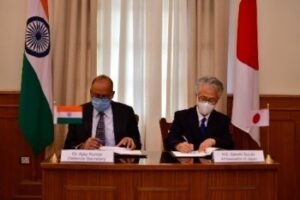
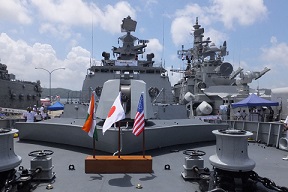
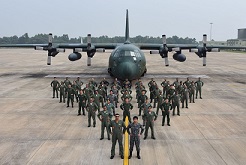

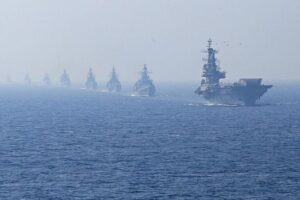

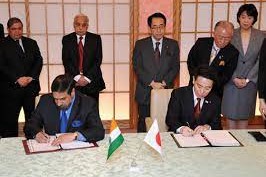

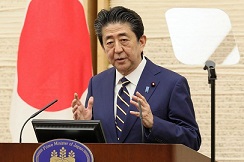
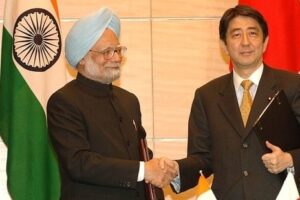
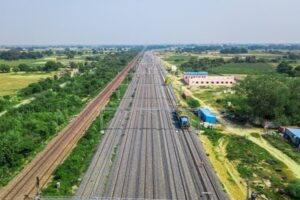
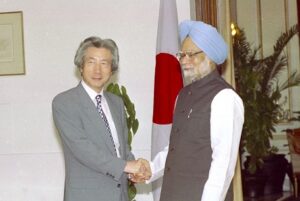
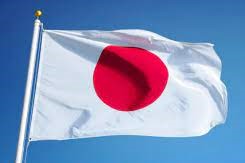
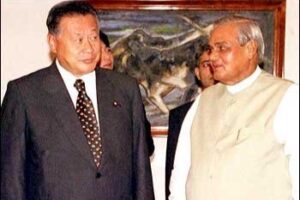

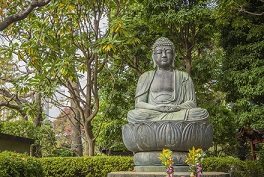


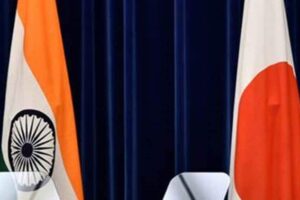
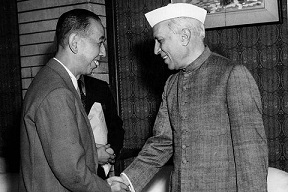


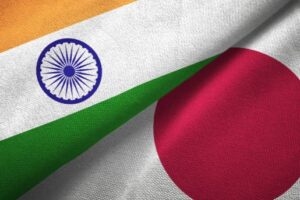
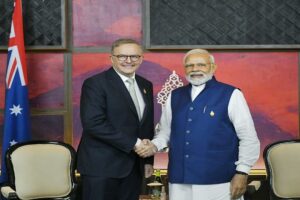
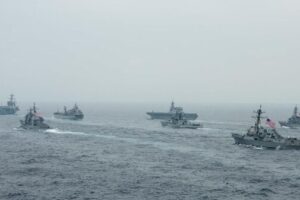
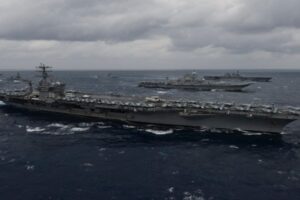
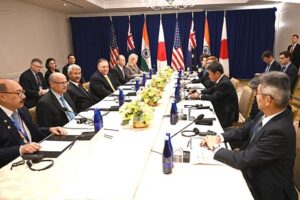
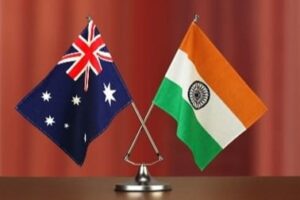
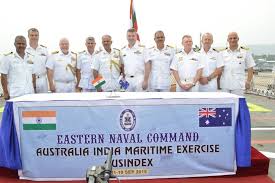

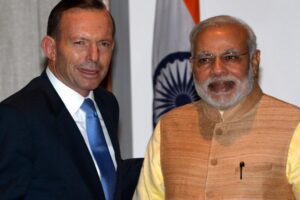
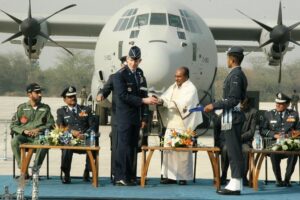
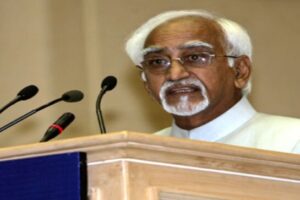



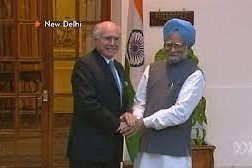
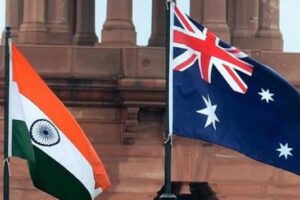
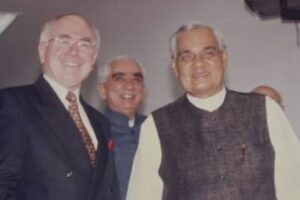

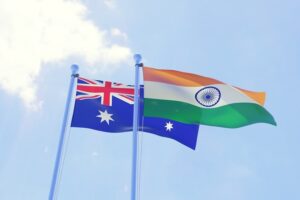

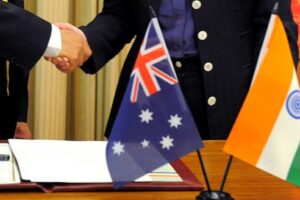
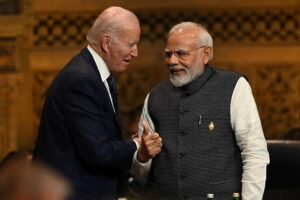
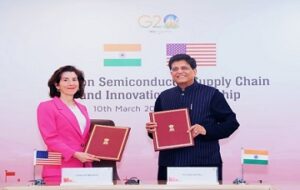
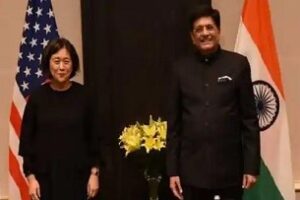
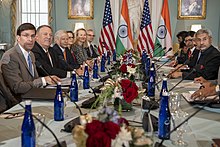
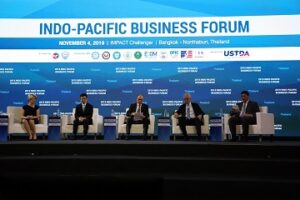
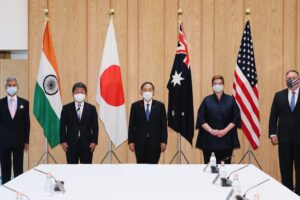
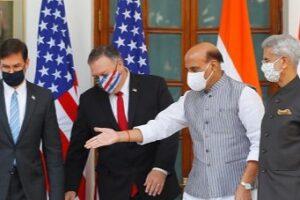
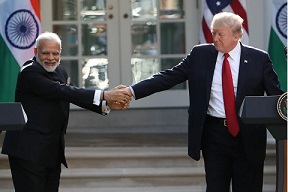
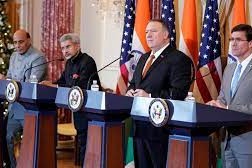
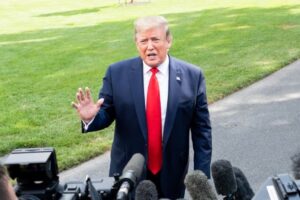
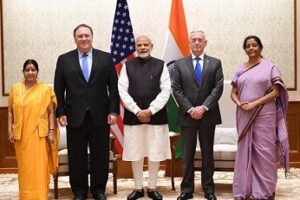
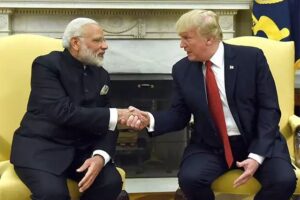
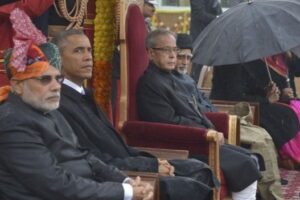
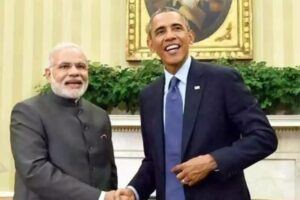
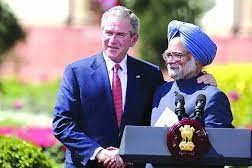
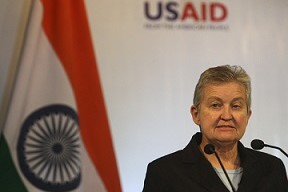
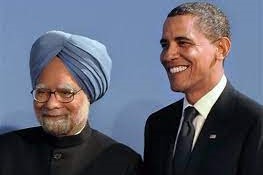
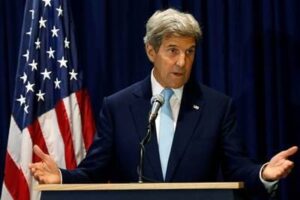
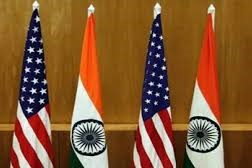
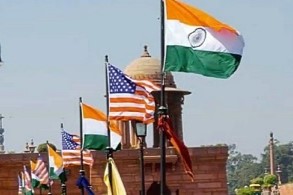
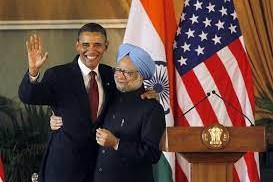
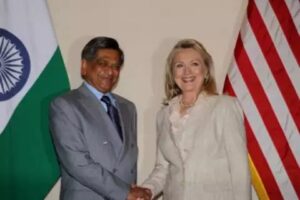
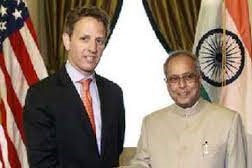
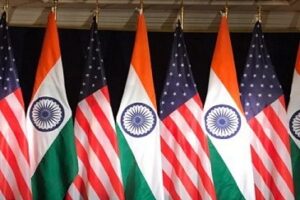
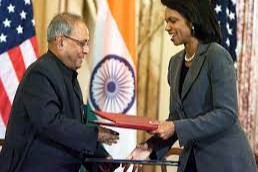

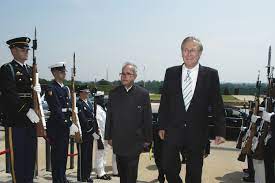
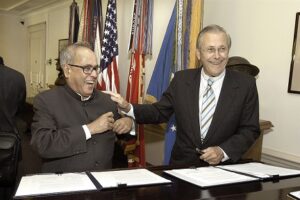

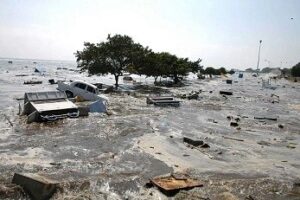
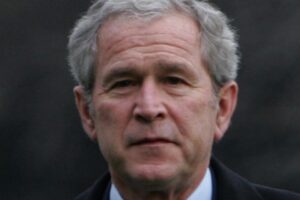
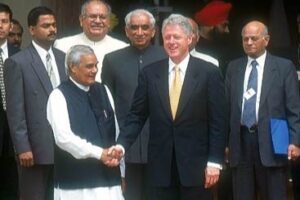
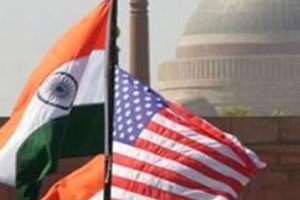
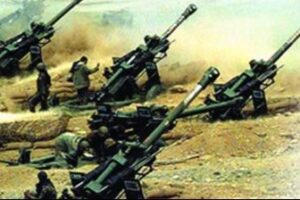
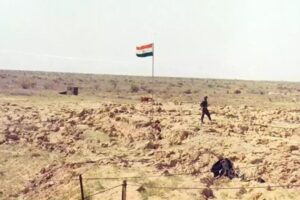 onducted a total of five underground nuclear tests, breaking a 24-year self-imposed moratorium on nuclear testing. Pakistan followed, claiming 5 tests on May 28, 1998, and an additional test on May 30. The unannounced tests created a global storm of criticism, as well as a serious setback for decades of U.S. nuclear nonproliferation efforts in South Asia. On May 13, 1998, President Clinton imposed economic and military sanctions on India, mandated by Section 102 of the Arms Export Control Act (AECA), and applied the same sanctions to Pakistan on May 30. Some effects of the sanctions on India included: termination of $21 million in FY1998 economic development assistance; postponement of $1.7 billion in lending by the International Financial Institutions (IFI), as supported by the Group of Eight (G-8) leading industrial nations; prohibition on loans or credit from U.S. banks to the government of India; and termination of Foreign Military Sales under the Arms Export Control Act. Humanitarian assistance, food, or other agricultural commodities are excepted from sanctions under the law.
onducted a total of five underground nuclear tests, breaking a 24-year self-imposed moratorium on nuclear testing. Pakistan followed, claiming 5 tests on May 28, 1998, and an additional test on May 30. The unannounced tests created a global storm of criticism, as well as a serious setback for decades of U.S. nuclear nonproliferation efforts in South Asia. On May 13, 1998, President Clinton imposed economic and military sanctions on India, mandated by Section 102 of the Arms Export Control Act (AECA), and applied the same sanctions to Pakistan on May 30. Some effects of the sanctions on India included: termination of $21 million in FY1998 economic development assistance; postponement of $1.7 billion in lending by the International Financial Institutions (IFI), as supported by the Group of Eight (G-8) leading industrial nations; prohibition on loans or credit from U.S. banks to the government of India; and termination of Foreign Military Sales under the Arms Export Control Act. Humanitarian assistance, food, or other agricultural commodities are excepted from sanctions under the law. 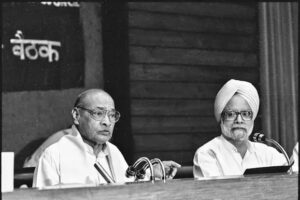
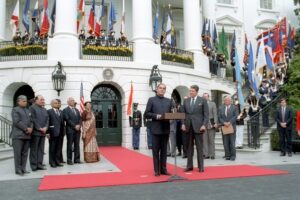
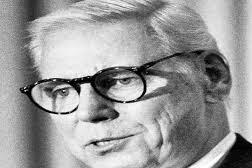
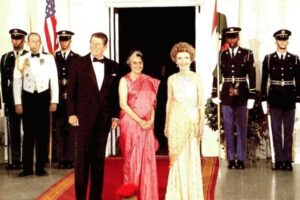
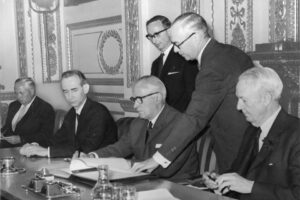
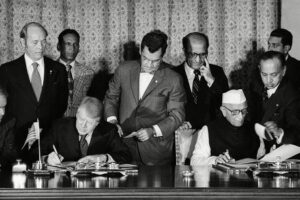
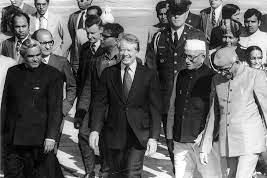
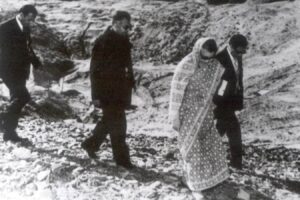
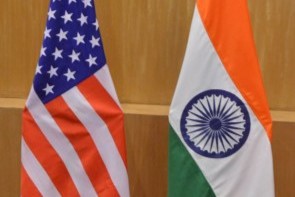

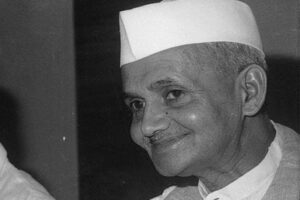

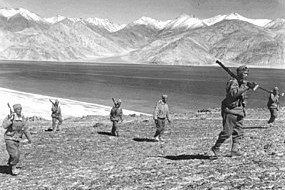
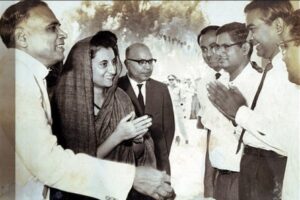
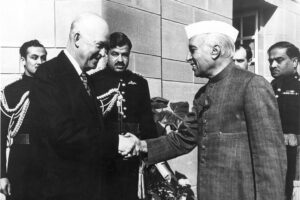

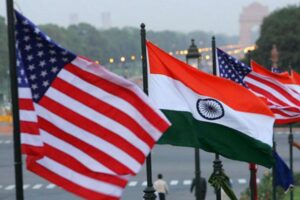
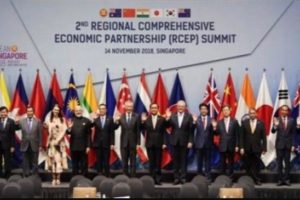 The first ministerial level meeting of QUAD was held on the sidelines of the United Nations General Assembly in New York. Before this, the QUAD had
The first ministerial level meeting of QUAD was held on the sidelines of the United Nations General Assembly in New York. Before this, the QUAD had AusIndEx is an exercise between India and Australia which was first held in 2015.The Australian
AusIndEx is an exercise between India and Australia which was first held in 2015.The Australian 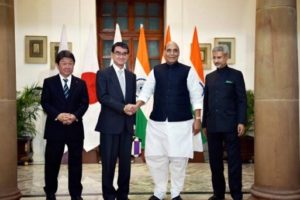

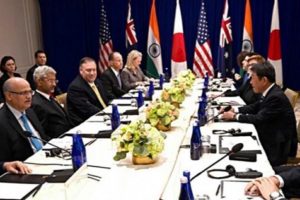

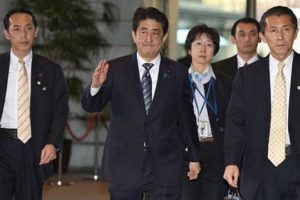
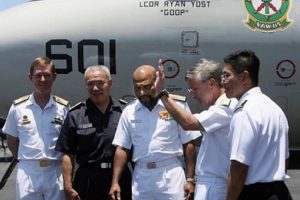
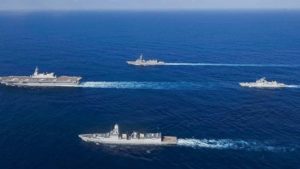
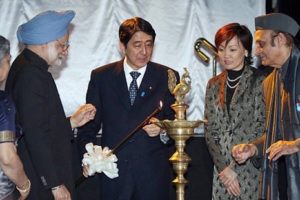
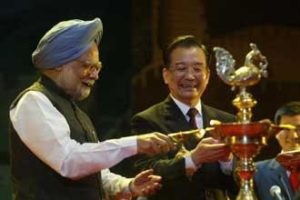 On recommendations of the Japanese government, the four countries met at Manila, Philippines for ASEAN Regional Forum (ARF) originally, but also ended up having a meeting of what we call the first meeting of four nation states on issues of
On recommendations of the Japanese government, the four countries met at Manila, Philippines for ASEAN Regional Forum (ARF) originally, but also ended up having a meeting of what we call the first meeting of four nation states on issues of 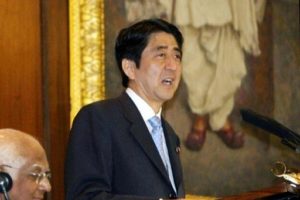 On his official visit to India, Japanese PM Mr. Shinzo Abe reinforced the ties of two nations, i.e., Japan and India with his famous speech about
On his official visit to India, Japanese PM Mr. Shinzo Abe reinforced the ties of two nations, i.e., Japan and India with his famous speech about  In 2007, Japanese President Shinzo Abe resigned from his post citing health reasons. This had a significant impact on QUAD as he was the architect & advocate of QUAD. His successor, Yasuo Fukuda, did not take up QUAD with such zeal leading to dormancy of the forum. (
In 2007, Japanese President Shinzo Abe resigned from his post citing health reasons. This had a significant impact on QUAD as he was the architect & advocate of QUAD. His successor, Yasuo Fukuda, did not take up QUAD with such zeal leading to dormancy of the forum. ( Japan earthquake and tsunami of 2011, also called Great Sendai Earthquake or Great Tōhoku Earthquake, was a 9.0 magnitude earthquake which struck below the floor of the Western Pacific at 2:49 PM. The powerful earthquake affected the northeastern coast of Honshu, Japan’s main island, and also initiated a series of large tsunami waves that devastated coastal areas of Japan, which also led to a major nuclear accident. Japan received aid from India, US, Australia as well as other countries. US Navy aircraft carrier was dispatched to the area and Australia sent search-and-rescue teams.
Japan earthquake and tsunami of 2011, also called Great Sendai Earthquake or Great Tōhoku Earthquake, was a 9.0 magnitude earthquake which struck below the floor of the Western Pacific at 2:49 PM. The powerful earthquake affected the northeastern coast of Honshu, Japan’s main island, and also initiated a series of large tsunami waves that devastated coastal areas of Japan, which also led to a major nuclear accident. Japan received aid from India, US, Australia as well as other countries. US Navy aircraft carrier was dispatched to the area and Australia sent search-and-rescue teams. 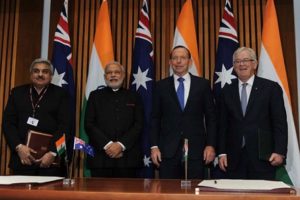 India and Australia signed the
India and Australia signed the 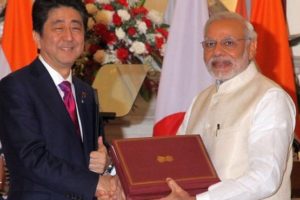 The India-Japan Agreement for Cooperation in the Peaceful Uses of Nuclear Energy was signed on 11 November, 2016 and came into force on 20 July, 2017 which was representative of strengthening ties between India and Japan. Diplomatic notes were exchanged between Dr. S. Jaishankar and H.E. Mr. Kenji Hiramatsu, Ambassador of Japan to India. (
The India-Japan Agreement for Cooperation in the Peaceful Uses of Nuclear Energy was signed on 11 November, 2016 and came into force on 20 July, 2017 which was representative of strengthening ties between India and Japan. Diplomatic notes were exchanged between Dr. S. Jaishankar and H.E. Mr. Kenji Hiramatsu, Ambassador of Japan to India. (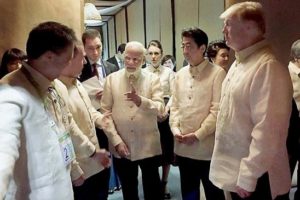 The foreign ministry
The foreign ministry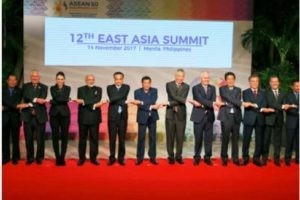 The Officials of QUAD member countries met in Singapore on November 15, 2018 for consultation on regional & global issues of common interest. The main discussion revolved around connectivity, sustainable development, counter-terrorism, maritime and cyber security, with the view to promote peace, stability and prosperity in the
The Officials of QUAD member countries met in Singapore on November 15, 2018 for consultation on regional & global issues of common interest. The main discussion revolved around connectivity, sustainable development, counter-terrorism, maritime and cyber security, with the view to promote peace, stability and prosperity in the 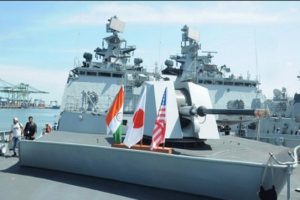 The 23rd edition of trilateral Malabar maritime exercise between India, US and Japan took place on 26 September- 04 October, 2019 off the coast of Japan.
The 23rd edition of trilateral Malabar maritime exercise between India, US and Japan took place on 26 September- 04 October, 2019 off the coast of Japan. 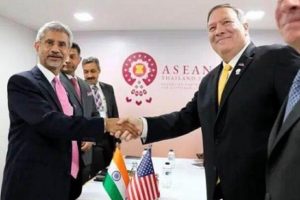 After the first ministerial level meeting of QUAD in September, 2019, the senior officials of US, Japan, India and Australia again met for consultations in Bangkok on the margins of the East Asia Summit. Statements were issued separately by the four countries. Indian Ministry of External Affairs said “In statements issued separately by the four countries, MEA said, “proceeding from the strategic guidance of their Ministers, who met in New York City on the sidelines of the UN General Assembly recently, the officials exchanged views on ongoing and additional practical cooperation in the areas of connectivity and infrastructure development, and security matters, including counterterrorism, cyber and maritime security, with a view to promoting peace, security, stability, prosperity in the Indo-Pacific region.”
After the first ministerial level meeting of QUAD in September, 2019, the senior officials of US, Japan, India and Australia again met for consultations in Bangkok on the margins of the East Asia Summit. Statements were issued separately by the four countries. Indian Ministry of External Affairs said “In statements issued separately by the four countries, MEA said, “proceeding from the strategic guidance of their Ministers, who met in New York City on the sidelines of the UN General Assembly recently, the officials exchanged views on ongoing and additional practical cooperation in the areas of connectivity and infrastructure development, and security matters, including counterterrorism, cyber and maritime security, with a view to promoting peace, security, stability, prosperity in the Indo-Pacific region.”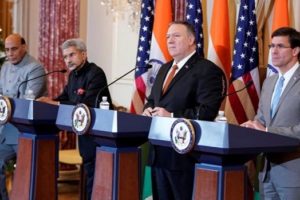 US 2+2 Ministerial Dialogue was held on 18 December, 2019, in Washington DC. Secretary of State Michael R. Pompeo and Secretary of Defense Mark T. Esper will host Indian Minister of External Affairs Dr. S. Jaishankar and Minister of Defense Shri Rajnath Singh. The discussion focussed on deepening bilateral strategic and defense cooperation, exchanging perspectives on global developments, and our shared leadership in the Indo-Pacific region.The two democracies signed the Industrial Security Annex before the 2+2 Dialogue. Assessments of the situation in Afghanistan, Pakistan, Nepal, Sri Lanka, and the Indian Ocean region in general were shared between both countries. (
US 2+2 Ministerial Dialogue was held on 18 December, 2019, in Washington DC. Secretary of State Michael R. Pompeo and Secretary of Defense Mark T. Esper will host Indian Minister of External Affairs Dr. S. Jaishankar and Minister of Defense Shri Rajnath Singh. The discussion focussed on deepening bilateral strategic and defense cooperation, exchanging perspectives on global developments, and our shared leadership in the Indo-Pacific region.The two democracies signed the Industrial Security Annex before the 2+2 Dialogue. Assessments of the situation in Afghanistan, Pakistan, Nepal, Sri Lanka, and the Indian Ocean region in general were shared between both countries. (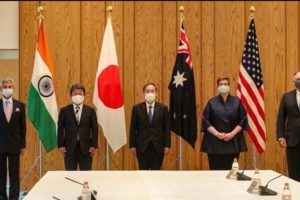 The foreign ministers of QUAD continued their discussions from the last ministerial level meeting in 2019, on 6 October, 2020. While there was no joint statement released, all countries issued individual readouts. As per the issue readout by India, the discussion called for a coordinated response to the challenges including financial problems emanating from the pandemic, best practices to combat Covid-19, increasing the resilience of supply chains, and enhancing access to affordable vaccines, medicines and medical equipment. There was also a focus on maintaining stability in the Indo-Pacific region amidst growing tensions. Australian media release mentions “We emphasised that, especially during a pandemic, it was vital that states work to ease tensions and avoid exacerbating long-standing disputes, work to counter disinformation, and refrain from malicious cyberspace activity. Ministers reiterated that states cannot assert maritime claims that are inconsistent with international law, particularly the United Nations Convention on the Law of the Sea (UNCLOS).”
The foreign ministers of QUAD continued their discussions from the last ministerial level meeting in 2019, on 6 October, 2020. While there was no joint statement released, all countries issued individual readouts. As per the issue readout by India, the discussion called for a coordinated response to the challenges including financial problems emanating from the pandemic, best practices to combat Covid-19, increasing the resilience of supply chains, and enhancing access to affordable vaccines, medicines and medical equipment. There was also a focus on maintaining stability in the Indo-Pacific region amidst growing tensions. Australian media release mentions “We emphasised that, especially during a pandemic, it was vital that states work to ease tensions and avoid exacerbating long-standing disputes, work to counter disinformation, and refrain from malicious cyberspace activity. Ministers reiterated that states cannot assert maritime claims that are inconsistent with international law, particularly the United Nations Convention on the Law of the Sea (UNCLOS).”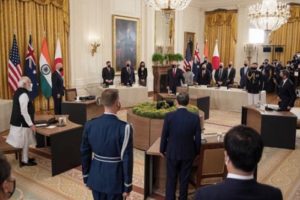 On September 24, President Biden hosted Prime Minister Scott Morrison of Australia, Prime Minister Narendra Modi of India, and Prime Minister Yoshihide Suga of Japan at the White House for the first-ever in-person Leaders’ Summit of the QUAD. The leaders released a Joint Statement which summarised their dialogue and future course of action. The regional security of the Indo-Pacific and strong confidence in the ASEAN remained on the focus along with response to the Pandemic.
On September 24, President Biden hosted Prime Minister Scott Morrison of Australia, Prime Minister Narendra Modi of India, and Prime Minister Yoshihide Suga of Japan at the White House for the first-ever in-person Leaders’ Summit of the QUAD. The leaders released a Joint Statement which summarised their dialogue and future course of action. The regional security of the Indo-Pacific and strong confidence in the ASEAN remained on the focus along with response to the Pandemic. 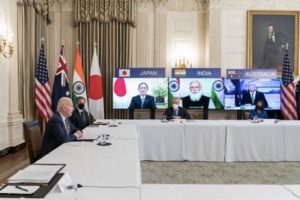 The QUAD Vaccine Partnership was announced at the first QUAD Summit on 12 March 2021 where QUAD countries agreed to deliver 1.2 billion vaccine doses globally. The aim was to expand and finance vaccine manufacturing and equipping the Indo-Pacific to build resilience against Covid-19. The launch of a senior-level QUAD Vaccine Experts Group, comprised of top scientists and officials from all QUAD member governments was also spearheaded.
The QUAD Vaccine Partnership was announced at the first QUAD Summit on 12 March 2021 where QUAD countries agreed to deliver 1.2 billion vaccine doses globally. The aim was to expand and finance vaccine manufacturing and equipping the Indo-Pacific to build resilience against Covid-19. The launch of a senior-level QUAD Vaccine Experts Group, comprised of top scientists and officials from all QUAD member governments was also spearheaded.  Although the Tsunami Core group had to be disbanded on fulfilment of its purpose, however the quadrilateral template that formed remained intact as a successful scaffolding of four countries, as stated by authors Patrick Gerard Buchan and Benjamin Rimland in their diplomatic brief about QUAD ( you can access the brief at
Although the Tsunami Core group had to be disbanded on fulfilment of its purpose, however the quadrilateral template that formed remained intact as a successful scaffolding of four countries, as stated by authors Patrick Gerard Buchan and Benjamin Rimland in their diplomatic brief about QUAD ( you can access the brief at 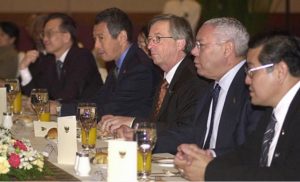 Secretary of State Colin Powell stated that the Core Tsunami Group was to be disbanded and folded and clubbed with the broader United Nations led Relief Operations. In a Tsunami Relief Conference in Jakarta, Secretary Powell stated that
Secretary of State Colin Powell stated that the Core Tsunami Group was to be disbanded and folded and clubbed with the broader United Nations led Relief Operations. In a Tsunami Relief Conference in Jakarta, Secretary Powell stated that 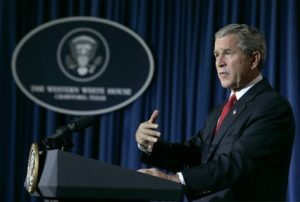 Soon after the Earthquake and Tsunami crisis, humanitarian reliefs by countries, viz., US, India, Japan, and Australia started to help the 13 havoc-stricken countries. The US initially promised $ 35 Millions in aid. However, on 29
Soon after the Earthquake and Tsunami crisis, humanitarian reliefs by countries, viz., US, India, Japan, and Australia started to help the 13 havoc-stricken countries. The US initially promised $ 35 Millions in aid. However, on 29 At 7:59AM local time, an earthquake of 9.1 magnitude (undersea) hit the coast of Sumatra, an Indonesian island. As a result of the same, massive waves of Tsunami triggered by the earthquake wreaked havoc for 7 hours across the Indian Ocean and to the coastal areas as far away as East Africa. The infamous Tsunami killed around 225,000 people, with people reporting the height of waves to be as high as 9 metres, i.e., 30 feet. Indonesia, Srilanka, India, Maldives, Thailand sustained horrendously massive damage, with the death toll exceeding 200,000 in Northern Sumatra’s Ache province alone. A great many people, i.e., around tens of thousands were found dead or missing in Srilanka and India, mostly from Andaman and Nicobar Islands of Indian territory. Maldives, being a low-lying country, also reported casualties in hundreds and more, with several non-Asian tourists reported dead or missing who were vacationing. Lack of food, water, medicines burgeoned the numbers of casualties, with the relief workers finding it difficult to reach the remotest areas where roads were destroyed or civil war raged. Long-term environmental damage ensued too, as both natural and man-made resources got demolished and diminished.
At 7:59AM local time, an earthquake of 9.1 magnitude (undersea) hit the coast of Sumatra, an Indonesian island. As a result of the same, massive waves of Tsunami triggered by the earthquake wreaked havoc for 7 hours across the Indian Ocean and to the coastal areas as far away as East Africa. The infamous Tsunami killed around 225,000 people, with people reporting the height of waves to be as high as 9 metres, i.e., 30 feet. Indonesia, Srilanka, India, Maldives, Thailand sustained horrendously massive damage, with the death toll exceeding 200,000 in Northern Sumatra’s Ache province alone. A great many people, i.e., around tens of thousands were found dead or missing in Srilanka and India, mostly from Andaman and Nicobar Islands of Indian territory. Maldives, being a low-lying country, also reported casualties in hundreds and more, with several non-Asian tourists reported dead or missing who were vacationing. Lack of food, water, medicines burgeoned the numbers of casualties, with the relief workers finding it difficult to reach the remotest areas where roads were destroyed or civil war raged. Long-term environmental damage ensued too, as both natural and man-made resources got demolished and diminished.
No responses yet